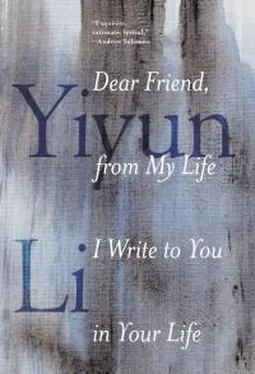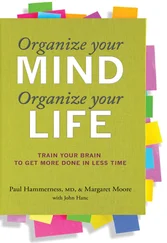What did Mansfield mean by that? No matter, it does not change the strange satisfaction of a spectator. These two extraordinary women would never know what they had (or had not) said about each other in their private papers. Not knowing transforms them into characters. To see the context of other people’s lives when that context is kept away from those who live in it: a reader always wins in the end; a reader has infinite time to interfere with the characters’ lives.
Oh, she did put me in her book, but only those quirky moments.
—A writer’s mother
Now you’ve all grown up I don’t have anyone to make pancakes for.
—A friend’s mother
Everyone can resort to an omniscient voice to tell another person’s stories. There is, however, one omniscient voice I cannot live with, yet it is the only voice that continues to drown out others.
Writing is the only part of my life I have taken beyond my mother’s storytelling. I have avoided writing in an autobiographical voice because I cannot bear that it could be overwritten by my mother’s omniscience. I can easily see all other parts of my life in her narrative: my marriage, my children, my past. Just as she demands to come into my narrative, I demand to be left out of hers. There is no way to change that; not a happy ending, not even an ending is possible.
At a reading given by two writers and attended by their mothers, I watched them occupy the same space with an ease that I envied. There were many things I could have asked them, about reading their children’s work and being written into their books. But what I really wanted to know was: What kind of food do you cook for your children?
For as long as I can remember, my mother has never cooked a meal for me. It is a story that cannot be told right in any voice.
Take a young man, ardent as an Arabian horse, let him marry, he is lost. First of all the woman is proud, then she is weak, then she faints, then he faints, then the whole family faints.
—Kierkegaard,
Either/Or
I was reading Kierkegaard while waiting to pick up my children from school. I wished I could wave some mother out of her idling vehicle and show her the passage. Reading, however, is a kind of private freedom: out of time, out of place.
When you read a name on an epitaph you are easily led to wonder how it went with his life in the world; one would like to climb down into the grave to converse with him.
—Kierkegaard,
Either/Or
It is an illusion that writing, like reading, gives one freedom. Sooner or later people come with their expectations: some demand loyalty; others, to be made immortal as characters. Only the names on the epitaphs remain silent.
These stories are dull and tedious as autumn, monotonous in tone, their artistic elements inextricably entangled with the medical, but none of this prevents me from having the temerity to approach you with a humble request for your permission to dedicate this little book to you.
—Anton Chekhov to Pyotr Tchaikovsky
In October 1889, Chekhov, not yet thirty years old and fairly new to his writing career, wrote to Tchaikovsky about a soon-to-be-published collection. The title was Gloomy People.
Under what circumstance can a writer and a reader become contemporaries? Chekhov’s invitation was a gesture to abolish the temporal divide. To cross the boundary so that another person’s name will remain with one’s words—it is almost an inappropriate request, yet the extraordinary justifies the inappropriateness. No friendship can be posthumous.
Reading William Trevor
In retrospect little makes sense—perhaps all stories, rather than once-upon-a-time, should start this way.
Shortly after my first book was published, I asked an Irish friend to send a copy with a thank-you note to William Trevor. I considered the note necessary—without his stories mine would not have been written. I wanted to be well mannered, too, so the note was brief and courteous. A few months later, a reply came, graciously written. I framed the letter and hung it in my study. It was uncharacteristic of me—to assign meaning to an object presumes an attachment. It was there as inspiration, I told myself, from someone I aspired to be.
The story might have ended here. I would have continued reading Trevor as I did Turgenev or Hardy: from a distance, which is a prerequisite for unabashed connection. But Turgenev and Hardy could not have written and raised the possibility of meeting in person one day.
The next November, traveling to London for an event, I wrote to Trevor about the possibility of visiting him. It is inconceivable now to think I behaved in such a way, as Trevor is among the most private writers, which was not difficult for me to deduce. I myself would have been taken aback by the inappropriateness of such a request.
—
THE EFFORT TO avoid isolation sometimes agitates me. The thought of disappearing from the world is an emergency exit, which I agreed to give up when I left the hospital. To think people used to be able to disappear easily: borders crossed, names changed, evidence destroyed, connections severed. No one seems to mind the absence of Miss Havisham or Mrs. Rochester. A father in a Jean Stafford novel walks out of a cobbler’s workshop and is never seen again. Maidens from Dream of the Red Chamber or The Tale of Genji, when heartbroken or abandoned, humiliated or disillusioned, become Buddhist nuns, their stories ending long before their lives do. An uncle, my mother’s eldest brother, vanished on the eve of the Communist victory over the Nationalist army, and an orphan girl, half maid and half daughter in the family and raised as his future bride, had to be married off to another man. The aunt in Nanxun, we called her; no other relative was known by the place where he or she lived. In an album there were family pictures she sent each year to my grandfather, all her children having inherited her remarkable beauty, growing up effortlessly in front of my eyes each time I flipped the pages. The aunt in Nanxun was mentioned often because of the unmentionable, an uncle presumably alive in Taiwan on optimistic days, presumably killed in action when optimism could not be sustained. (I learned of his existence and the conjecture of his fate by eavesdropping on my mother and my aunt once. Foolishly I told a friend at school, who then wrote a note to inform the teacher about this uncle of mine in Taiwan. The note was passed on to my mother. The teacher was her colleague, thoughtful enough to intercept a secret that could bring harm, though I could not find gratitude for the teacher nor forgiveness for my friend. It was because of their meddling that I received a beating.)
Forty years later the uncle appeared as unexpectedly as he had disappeared, in a long letter that had taken more than a year, through many hands, to reach his father. My grandfather, with a few months to live, hoped for a reunion with his lost son, but the travel ban across the Taiwan Strait would not be lifted for another two years.
We now live in an ever-connected world, allocated only the wishful thinking of privacy and solitude. Once, when my green card application was denied and it was reported in the news, a man calling himself Doctor S— kept phoning my workplace with a marriage offer, saying it would secure a green card for me. Once a woman said to me at a cocktail party the moment I entered the well-groomed garden: I want you to know, had my mother had your success she would not have killed herself. At a festival in East Sussex I watched a man come up to Trevor afterward and ask if he could stop by for tea, describing Trevor’s house correctly and in detail.
—
IN NOTES SENT to my publisher and to the hotel, Trevor asked me to phone once I arrived in London. A meeting was proposed, not in Devon, where he lives, but in Bath, more easily accessed by train for both parties. It was considerate of him, I knew, but it also occurred to me that Bath would be safer for him to meet a stranger. I could be a character in a Trevor story, quiet and nondescript yet possessing inexplicable malevolence. Can a mistrustful person, who is capable of dissecting herself with ruthless imagination, be trustworthy at all?
Читать дальше












